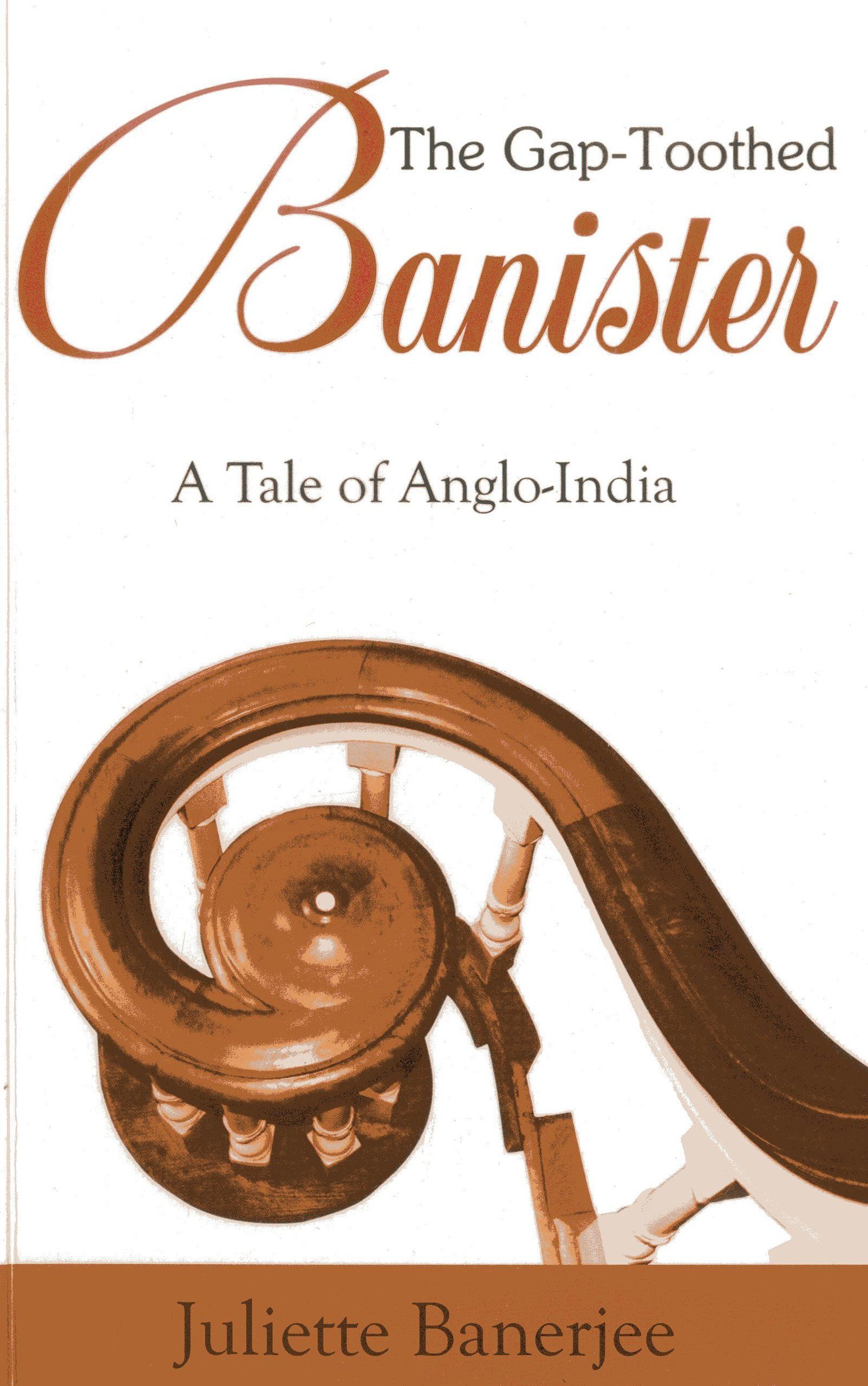Another Look at India’s Books: Juliette Banerjee’s “The Gap-Toothed Banister: A Tale of Anglo-India”
In this column, Saikat Majumdar discusses books from India that haven’t received due attention.
By Saikat MajumdarMay 12, 2022

In this column, Saikat Majumdar discusses books from India that haven’t received due attention.
¤
“Can’t maintain any bloody thing, these people,” an older male character says early in Juliette Banerjee’s novel The Gap-Toothed Banister. “In the old days we’d have water hosed on the streets every morning. Now most gutters and lanes are used as glorified toilets. No pride, no shame. They’ll squat anywhere, spit up any place but their homes. No idea of civic pride, shove them back into huts, that’s all they seem fit for. Herd them back to their villages.”
The familiar complaint — that Indians spit, urinate, and defecate on open streets — assumes many conflicting layers here. Articulated in independent India, the desire for clean roads marks the aspiration of postcolonial development. But this aspiration gets sharply twisted when uttered in disdain by the Anglo-Indian Bob. The flavor of the disdain comes from Bob’s English identity, no matter how deeply lapsed or fragmented that identity may be. It ends up mimicking the colonial English disdain for the barbaric natives, who are fit not for the “forward” march to civilization but only for the “backward” shift to their huts and villages.
Banerjee’s novel, as hinted in the wistful irony of its title, celebrates this mix of disdain and nostalgia often felt by one of India’s most marginalized, and often impoverished, communities, the Anglo-Indians, who are descended from interracial relationships between the ruling English and native South Asians. It is a community trapped between, on the one hand, a bruised sense of superiority and refinement drawn from its residual English bloodline, and, on the other, social alienation and economic marginalization in the mainstream of post-independence Indian society.
This might explain a few things about the delightfully alien texture of Banerjee’s neglected novel. Though written in English, it sometimes reads like a translation from a different space and time, even though it evokes the reality of Calcutta in the decades after independence. Imagine a Victorian novel set in this here and now, amid the sweat and grit, the desultory heat and heavy despair, and you get some of the feel. “It was the month of May,” goes the poetic refrain at the end of many of the early chapters, where we’re introduced to the characters. If the 19th-century Raj novel were to have a mock-heroic 20th-century sequel, it might look like this. The novel follows a close-knit Anglo-Indian community in central Calcutta, particularly a handful of families, their social lives, their nostalgia, their longing, and their irregular mingling with both the poor and the rich of Hindu India.
Women define an honest and restless conscience in the work, where the men are mostly empty braggarts or old fogeys caught in the decayed romance of the past and a vicious hatred of the present. In the Renshaw family, the elder daughter, Grace, attracts the richest empathy from the reader, and we see the crumpled aspirations of the Anglo-Indian community through her eyes. In these eyes, too, we see the community’s eventual dream of immigration to English-speaking countries such as Australia — which, while realized in the end, is tinged with the melancholy loss of home, brought to life by the tinned sweets, the rosogollas, at the Indian corner shop. Class conflict, too, roils the community, dramatized in the flutter between Roger Lawson and an affluent, liberated Marwari woman, Rupa Jaiswal, and, more poignantly, in the short-lived fling between Lucy D’Cruze and the neighbourhood car mechanic. Doomed to be the lifelong cook-and-servant to her aging uncle Edward “Eddie” D’Cruze, the beautiful Lucy runs away from her home, only to realize the impossibility of life with her working-class lover.
Un-belonging defines all these people. They wait all year long for a single carnival, the May Queen Ball, which, against many expectations, crowns Grace Renshaw, but also ends with a tragic brawl and accident. The Gap-Toothed Banister tells a story of nostalgia for the imaginary golden period of British rule that can only end with departure from contemporary India, a story haunted by the sadness of an irretrievable past. For some people — perhaps for most people in the world — there is no true home, neither in place, nor in time.
¤
Saikat Majumdar is the author of four novels, most recently, The Middle Finger (2022) –along with The Scent of God (2019), The Firebird (2015), published in the US as Play House (2017), and Silverfish (2007). He has also published a book of literary criticism, Prose of the World (2013), a work of nonfiction, College (2018), and a co-edited collection of essays, The Critic as Amateur (2019). His current book-in-progress, on reading, autodidactism, and amateurism, tentatively titled The Poor Reader: Amateur Criticism and Postcolonial Consciousness, is contracted to Bloomsbury.
LARB Contributor
Saikat Majumdar’s most recent books are The Amateur (2024) and a novel, The Remains of the Body (2024). He wrote the LARB column Another Look at India’s Books from 2020 to 2022. He is the author of four previous novels, including The Firebird/Play House (2015/2017) and The Scent of God (2019); a book of criticism, Prose of the World: Modernism and the Banality of Empire (2013); a book on liberal education in India, College: Pathways of Possibility (2018); and a co-edited collection of essays, The Critic as Amateur (2019).
Did you know LARB is a reader-supported nonprofit?
LARB publishes daily without a paywall as part of our mission to make rigorous, incisive, and engaging writing on every aspect of literature, culture, and the arts freely accessible to the public. Help us continue this work with your tax-deductible donation today!